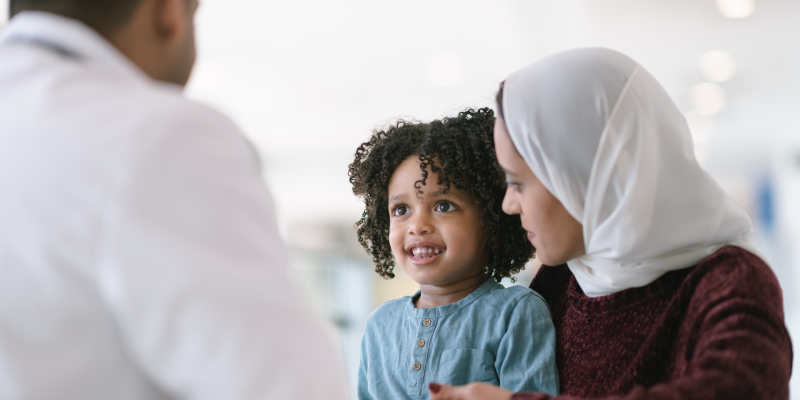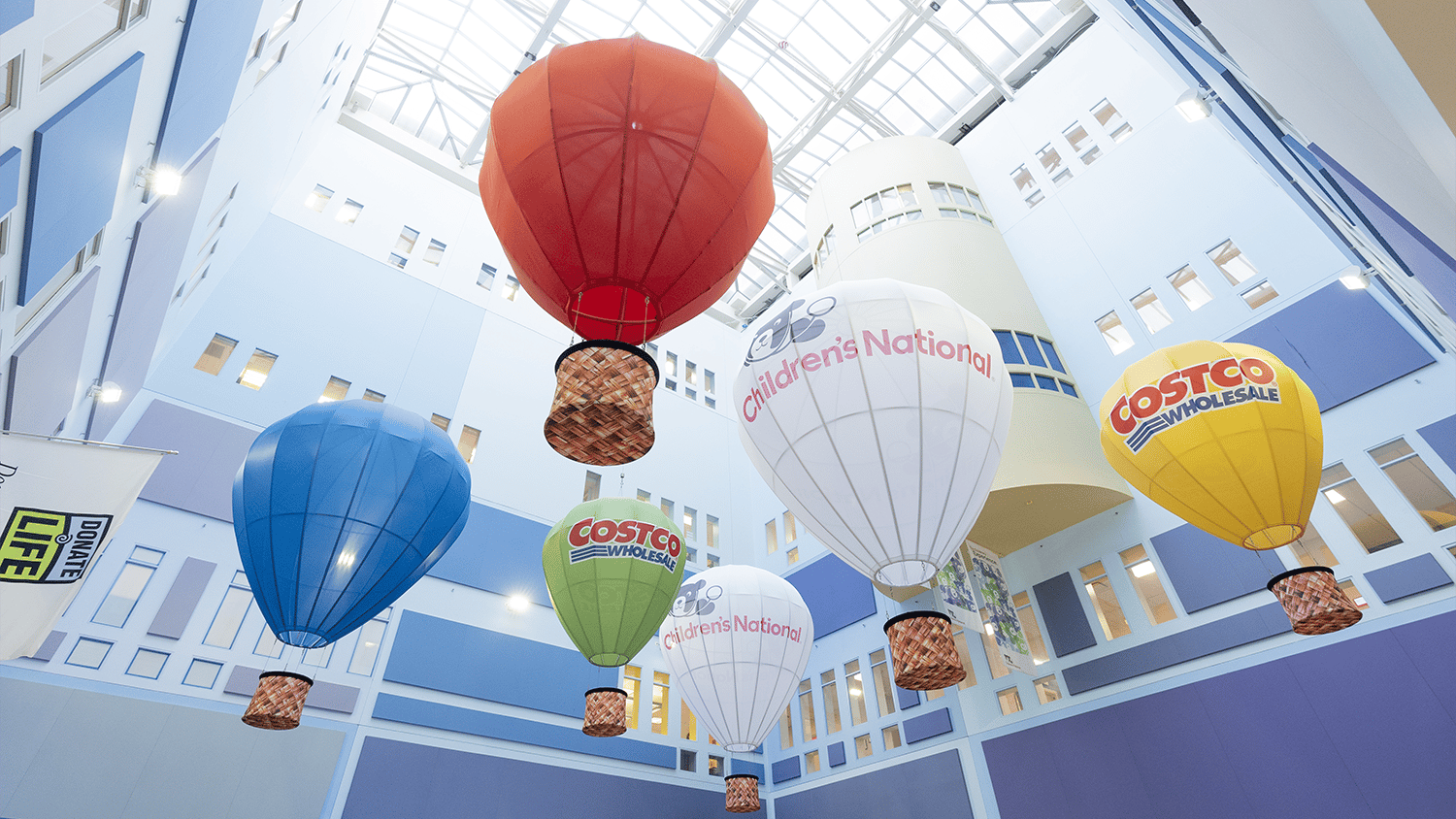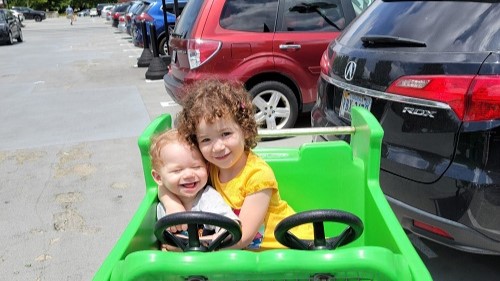
Positive Reevaluation of Urogenital Differences (PROUD) Clinic

A Message for Existing and New Patients
In light of escalating legal and regulatory risks to Children’s National, our providers, and the families we serve, we are discontinuing the prescription of gender-affirming medications. This change went into effect on August 30, 2025.
Mental health and other support services for LGBT patients remain available. You are always welcome at Children’s National for your other medical needs.
We know this change will have a significant impact on affected patients, families and staff. Our care teams are working directly with families of current patients to support them.
If you have questions or need further assistance, please contact us directly.
The Children’s National Positive Reevaluation of Urogenital Differences (PROUD) Clinic, formerly known as the Differences (or Disorders) of Sexual Development Clinic, provides specialized diagnostic, evaluation and treatment services for children with a variety of rare and complex diseases. Our care, which ranges from prenatal diagnoses to adolescence, is individualized for each patient and always involves families making decisions in coordination with a team of highly trained pediatric specialists.
Our Providers
Our pediatric specialists provide personalized care for your child’s physical, mental and emotional health needs.
Contact Information
For appointments, please call 1-888-884-BEAR (2327) and for information, call 202-476-5631.
Differences in Sex Development
Differences in sex development (DSD) include a large and varied number of conditions. They consist of conditions in which the chromosomes, the gonads (testes or ovaries), or internal or external sexual organs are considered atypical. These differences are not as rare as many think and may happen in 0.2% to 1.7% of births. These conditions may be identified in the following ways:
- Before birth, when genetic testing or ultrasound reveal atypical findings
- When a baby is born with ambiguous genitalia
- During evaluation for a hernia in childhood
- When a teen has abnormal puberty
- During evaluation for infertility
When the gonads, internal reproductive structures or external genitalia do not grow normally, the child has a difference in sex development. The first question that is usually asked after the delivery of a newborn is, "Is it a boy or a girl?" However, if the genitalia are ambiguous, this question cannot be answered immediately. It is important to avoid guessing the sex or making any assumptions until there is more information about the underlying cause.
PROUD Clinic Services
The PROUD Clinic is led by Veronica Gomez-Lobo, MD, who works closely with specialists in pediatric endocrinology, urology, gynecology, genetics and psychiatry to create an individual care plan for every patient and family.
Conditions treated in the PROUD Clinic include:
- Congenital adrenal hyperplasia
- 5 alpha reductase deficiency
- Complete or partial gonadal dysgenesis
- XX Testicular DSD
- Ovotesticular DSD
- Persistent Mullerian duct syndrome
- Sex-chromosome mosaicism
- Testosterone synthesis defects
- Androgen insensitivity syndrome (complete and partial)
Our services include genetic counseling, genetic testing, surgical reconstruction, hormonal therapy and psychological and psychosocial support.
Children’s National is part of the Disorders of Sex Development Translational Research Network (DSD-TRN), a NIH-supported group of medical centers working to improve knowledge about and care for patients with DSD.
Children's National is also a member of the Accord Alliance. Accord Alliance promotes comprehensive and integrated approaches to care that enhance the health and well-being of people and families affected by DSD.
A Clinic to Meet the Needs of Families
Every month, Children’s National brings together the Proud Clinic's team of experts to meet with patients and their families. The team specializes in treating differences of sexual development, and provides families with resources and expertise in a compassionate environment. The clinic is held on the fourth Tuesday of every month at the Washington Nationals Diabetes Care Complex at Children’s National Hospital in Washington, D.C.
If you would like more information about the PROUD Clinic, please contact the Endocrinology office at 202-476-5631 or Tammy Middleton-Walker, RN, at 202-476-4187.
Jordan's Story
Genetic conditions like Jordan's, 16p11.2 duplication syndrome, can be difficult to identify and requires experts like those at the Rare Disease Institute to carefully analyze the patient's symptoms and compare them to other documented cases.
Family Resources
At Children’s National, we understand that families have many questions about their child’s condition and care. Your care providers may offer specific resources, but we also have online resources available to answer your questions and connect you with the information you need.
Locations

Main Hospital
- Specialty Care
- Emergency Care





